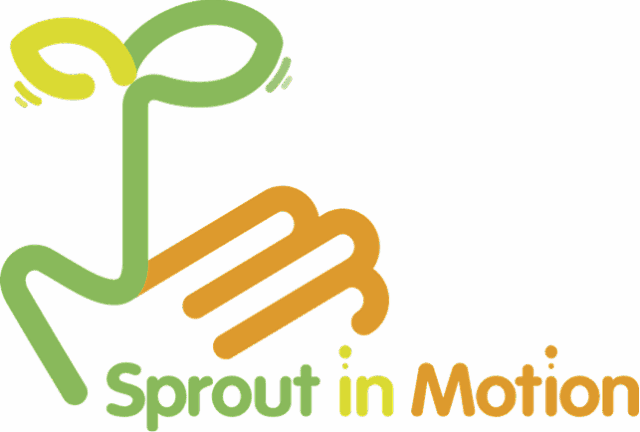
Understanding the Challenges of the IB Curriculum for Neurodivergent Students with ASD, ADHD, and Executive Functioning or Language Difficulties
August 10, 2025
6 min read
The International Baccalaureate (IB) curriculum is known for its rigorous academic expectations, emphasis on critical thinking, and holistic approach to education. While these attributes make it an excellent program for many students, it can pose unique challenges for those with Autism Spectrum Disorder (ASD), Attention Deficit Hyperactivity Disorder (ADHD), or difficulties in executive functioning and language skills. As a parent, understanding these challenges and how best to support your child can make a significant difference in their educational journey.
Why Do Many International Schools Choose the IB Curriculum?
Over the past few decades, more and more international schools have transitioned to the IB curriculum. This shift is closely tied to the IB’s global perspective and educational philosophy. By understanding the reasons behind this transition, parents can better grasp the opportunities and challenges their children face.
1. Globally Recognized Standards
The IB curriculum is a globally accepted educational system that is highly regarded by universities worldwide. Its academic rigor and unique assessment methods (a combination of internal assessments and external examinations) provide students with a strong academic foundation, giving them a competitive edge when applying to top universities.
2. Focus on Holistic Education
The IB curriculum emphasizes holistic development, valuing not only academic achievement but also character, creativity, and social responsibility. For example, the Creativity, Activity, Service (CAS) component requires students to engage in community service activities, fostering empathy and social engagement. This comprehensive educational approach appeals to many parents and schools.
3. Emphasis on Critical Thinking and Global Perspective
The IB encourages critical thinking and intercultural communication, helping students understand global issues within diverse cultural contexts. For instance, the Theory of Knowledge (TOK) course trains students to reflect deeply on the origins and uses of knowledge, while the second-language requirement promotes cross-cultural understanding. These features are particularly well-suited to students in international schools, who often come from different cultural backgrounds and may plan to live or work in global environments.
4. Fostering Independent Learning
Large projects in the IB curriculum, such as the Extended Essay (EE) and Internal Assessments (IA), require students to conduct independent research and write academic papers. These experiences help students develop self-management and academic writing skills, which are essential for success in university and the workplace.
5. Preparing Students for the Future
With globalization and technological advancements, modern society demands more than just academic knowledge. It requires problem-solving skills, innovative thinking, and cross-cultural communication abilities. The IB curriculum is designed to cultivate these future-ready skills, ensuring students can adapt to a rapidly changing world.
Why the IB Curriculum Can Be Challenging
The IB program’s structure and demands are both its greatest strengths and potential hurdles for students with diverse learning needs. Here are some key aspects of the IB curriculum that may present challenges:
1. Heavy Focus on Independent Learning and Research
The IB encourages students to take ownership of their learning through self-directed tasks like the Extended Essay (EE) and Internal Assessments (IA). For students with executive functioning difficulties or ADHD, managing long-term projects, organizing research, and meeting deadlines can be overwhelming.
2. Complex Multitasking
IB students must juggle multiple subjects, extracurricular activities, and the Creativity, Activity, Service (CAS) component. For children with ASD or ADHD, this level of multitasking can lead to significant stress, especially when prioritizing tasks or switching between different areas of focus.
3. Language-Intensive Curriculum
The IB emphasizes communication skills, requiring students to analyze texts, write essays, and participate in discussions in multiple languages. For students with language processing difficulties, this can be a considerable barrier, as decoding abstract ideas, expressing thoughts clearly, and understanding nuanced language are key to success in the program.
4. Theory of Knowledge (TOK)
TOK requires students to engage in abstract and philosophical thinking, exploring questions like “How do we know what we know?” For students with ASD, who may prefer concrete thinking or struggle with open-ended concepts, this subject can feel particularly daunting.
5. Group Work and Collaboration
The IB encourages collaboration through group projects and discussions. However, students with ASD may face challenges in social interactions, understanding group dynamics, or managing sensory sensitivities in collaborative settings.
Unique Challenges for Neurodivergent Students with ASD, ADHD, and Executive Functioning or Language Difficulties
Students with ASD
- Difficulty with Abstract Thinking: Many students with ASD excel in concrete, logical reasoning but may struggle with the abstract and interpretative aspects of the IB curriculum.
- Sensory Overload: The fast-paced, high-pressure environment of the IB program can heighten sensory sensitivities.
- Social Challenges: Group work and presentations, which are common in the IB, can be overwhelming for students who find social communication difficult.
Students with ADHD
- Time Management Issues: The need to meet strict deadlines and manage multiple projects can be overwhelming for students who struggle with sustained attention.
- Impulsivity and Distraction: ADHD can make it hard to stay focused during long periods of study or planning.
- Frustration with Nonlinear Thinking: ADHD students may struggle with the non-sequential, reflective style of some IB subjects, such as TOK.
Students with Executive Functioning Difficulties
- Organizational Struggles: Planning, organizing, and breaking down tasks into manageable steps are key to succeeding in the IB curriculum but are significant challenges for these students.
- Difficulty with Transitions: Shifting focus between subjects or tasks can be particularly hard, leading to procrastination or missed deadlines.
Students with Language Difficulties
- Reading and Writing Demands: The IB curriculum’s emphasis on essay writing, text analysis, and oral presentations can be challenging for students who struggle with language processing or expression.
- Second-Language Learning: The requirement to study a second language may exacerbate existing language difficulties.
How Early Should Parents Start Teaching Time Management Skills?
Time management is a critical skill for success in the IB program and beyond. For children with ASD, ADHD, or executive functioning difficulties, it’s never too early to begin teaching these skills. Ideally, parents should start introducing time management concepts as early as preschool or elementary school.
Early Steps to Teach Time Management
- Use Visual Timers and Schedules
- For young children, visual aids like timers and picture-based schedules can help them grasp the concept of time and understand how to allocate it.
- For example, use a timer to show how long a specific task (e.g., brushing teeth or cleaning up toys) should take.
- Teach Routine and Consistency
- Establish consistent daily routines to help your child understand structure and predictability.
- Encourage them to follow a sequence of activities, such as getting dressed, eating breakfast, and packing their school bag.
- Introduce Checklists
- As children grow older, introduce simple checklists to help them keep track of tasks.
- Start with a few tasks (e.g., “Finish homework” or “Pack lunch”) and gradually add more complexity.
- Model Time Management
- Children learn by observing. Demonstrate how you plan your day, prioritize tasks, and manage your time effectively.
- Involve your child in planning family activities, such as deciding when to go grocery shopping or scheduling playtime.
- Teach the Value of Breaks
- Explain that taking short breaks between tasks can help them recharge and focus better.
- Encourage the use of structured breaks, such as a 5-minute stretch after 20 minutes of focused work.
Gradual Progression to Advanced Time Management
As your child enters middle school and high school, gradually introduce more advanced time management strategies:
- Use Planners or Digital Tools: Help them track deadlines and plan their week using planners, apps, or digital calendars.
- Set Goals: Teach them to set achievable short-term and long-term goals, breaking big projects into smaller steps.
- Prioritize Tasks: Encourage them to identify which tasks are most important and allocate time accordingly.
- Reflect and Adjust: After completing a task, discuss what worked and what could be improved to refine their time management skills.
Starting early and reinforcing these habits over time can set a strong foundation for managing the IB curriculum’s demands.
How Parents Can Support Their Child
While the IB curriculum is demanding, there are ways to help your child navigate its challenges and build the skills they need to succeed.
1. Advocate for Accommodations
The IB program allows for accommodations to support students with special needs. Speak with your child’s school to ensure they receive appropriate support, such as:
- Extended time on exams and assignments.
- Access to assistive technology, such as speech-to-text software.
- Adjusted deadlines for long-term projects.
- Alternative formats for assignments, such as oral presentations instead of written reports.
2. Encourage Time Management Strategies
Help your child develop time management skills by:
- Breaking large tasks into smaller, achievable steps.
- Using planners or digital tools to track deadlines and progress.
- Setting aside regular check-in times to review their workload and priorities.
3. Provide Emotional Support
The IB curriculum can be stressful, so it’s important to create a supportive home environment. Encourage open communication and reassure your child that it’s okay to seek help when needed.
4. Work with Teachers and Counselors
Collaborate with your child’s teachers, school counselors, and learning support staff to create an individualized approach to their education. Regular communication ensures that everyone is on the same page about your child’s needs and progress.
5. Focus on Strengths
Help your child identify their strengths and use them as a foundation for success. For example, if they excel in logical thinking, encourage them to apply this skill to subjects like mathematics or science.
6. Practice Self-Care
Remind your child to prioritize their well-being by getting enough sleep, eating well, and engaging in activities they enjoy. Managing stress effectively is crucial for long-term success in the IB program.
Final Thoughts
The IB curriculum is challenging, but it also provides an opportunity for students to develop critical skills and knowledge. For students with ASD, ADHD, or executive functioning and language difficulties, the journey may require additional support, patience, and creativity.
By starting time management training early, advocating for accommodations, fostering a supportive environment, and working closely with educators, parents can help their children navigate the IB program and unlock their potential. With the right strategies in place, every student can benefit from the enriching experiences that the IB curriculum offers.





